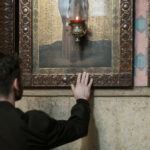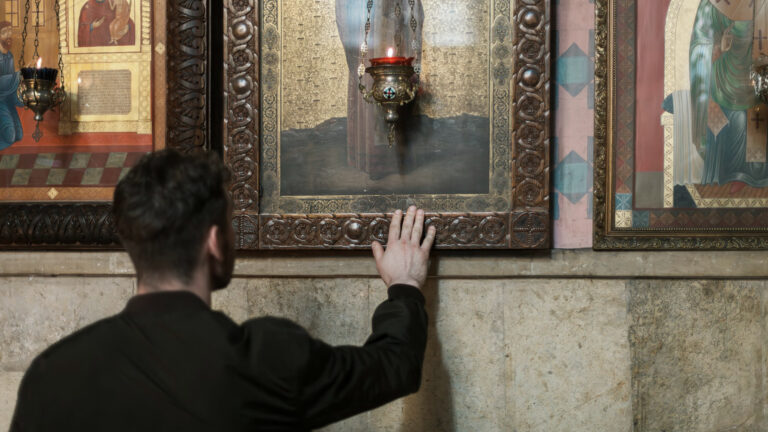One of the characters in C. S. Lewis’s Chronicles of Narnia who has always stood out to me is Nikabrik, the dwarf who shows up in Prince Caspian. Lewis gave us Nikabrik as a cautionary tale of what happens when the bitterness of betrayal and hatred of one’s enemies so consumes the heart that virtue and joy disappear.
What strikes me about Nikabrik is that his cause is just. He is on the right side, but with the wrong heart. His bitterness has led to disdain toward others, to the point that all of his interactions are influenced by his poisoned mind.
I worry that Nikabrik-types are multiplying across our country, both in politics (on both the left and the right) as well as in theological disputes. Social media rewards the Nikabriks and their quick takes, conclusion-jumping, and self-righteousness. The scary thing is, once you begin down the path of Nikabrik, you feel more and more justified.
Here are four traits of Nikabrik to look out for.
1. Assume the worst, always.
We first see Nikabrik when Prince Caspian is taken captive. Nikabrik immediately assumes the worst and recommends that he and his friends kill the prince. “We can’t let it live. It would betray us,” he says. As the story unfolds, Nikabrik continually assumes that whatever happens or is about to happen is always the “worst-case scenario,” which then demands the quickest and most drastic action.
Nikabriks have felt the heartache of betrayal. They’ve been burned before. In order to avoid such hurt again, they find it easier to erect a wall around the heart—to assume everyone is out to get them, and then dispose of people rather than deal with them in their complexities. They find it hard to trust in the goodness of others because they’ve been let down before, and they don’t want to be “the fool.”
Nikabriks think it best to write someone off rather than give them a hearing. They assume the worst of someone in a different tribe (whether politically or theologically), and they assume the worst when someone from their own tribe raises issues or asks questions that may lead to greater wisdom and reflection. Suspicion reigns supreme.
“Love hopes all things” and assumes the best, even at the risk of being let down. Nikabriks assume the worst, always. Better to dispose of an innocent person and protect yourself than to face the risk of betrayal.
2. Partner with whoever hates whom you hate.
Throughout the story, Lewis describes Nikabrik as someone who hates the Humans who have mistreated the dwarfs and also the mixed race of humans/dwarfs. “I hate ‘em. I hate ‘em worse than the Humans,” he says of Caspian’s teacher, Doctor Cornelius.
Nikabrik expresses a deep-seated emotional response to group identity. Although he claims to be dedicated primarily to his tribe of dwarfs, he is driven more by disdain for everyone outside of his people than he is for the people he claims to be for. The primary emotion Nikabrik feels toward those outside his tribe is contempt, to the point it infects his relationship with his friends. “You make me sick,” he tells a good-hearted friend who displays virtue and faith. He has no time for sentimental drivel—a naïve, rosy-eyed view of the world that would put forth a positive vision for the good life. Nikabrik goes into battle, not (as Chesterton said) out of love for what’s behind him, but out of hatred for who stands before him.
3. Take yourself seriously, all the time.
A third characteristic of Nikabrik is the inability to enjoy anything good. During one of the memorable scenes in Prince Caspian, when the creatures of old Narnia come together, all the characters rest and enjoy the sunset and the daisies. Nikabrik won’t light a pipe. When the great dance with the Fauns takes place, “only Nikabrik stayed where he was, looking on in silence.”
Lewis doesn’t tell us why Nikabrik didn’t take part in the festivities, but it’s likely that he wanted us to see the dwarf as being so consumed by the righteousness of his cause and the suffering of those on “his side” that he had forgotten the happiness he once had fought for. Consumed by the seriousness of the cause, Nikabrik cannot let down his guard to smile, to laugh, or to enjoy the good things in life.
4. Sacrifice your principles for pragmatic results.
Nikabrik is the one who eventually proposes a summoning of the White Witch in an effort to win the battle against evil. When asked if he believes in Aslan, he replies, “I’ll believe in anyone or anything that’ll batter these cursed Telmarine barbarians to pieces or drive them out of Narnia. Anyone or anything, Aslan or the White Witch, do you understand?”
Nikabrik cares primarily about himself and his people. He doesn’t mind sacrificing his principles for pragmatic results as long as his own people are treated better. “She got on all right with us Dwarfs. I’m a dwarf and I stand by my own people. We’re not afraid of the Witch. . . . If you can’t help my people, I’ll go to someone who can.”
Joe Rigney summarizes in Live Like a Narnian:
Nikabrik operates according to a mercenary logic that says, “the enemy of my enemy is my friend.” What’s more, Nikabrik again proves his pragmatic willingness to embrace anyone that will help the Old Narnians defeat the Telmarines. He invites a Hag and Werewolf into the council with the intention of calling up the White Witch. “We want power,” he says, “and we want a power that will be on our side.”
Lewis shows us what happens when Nikabrik’s way is chosen: battle, betrayal, and in the end, death. In sacrificing goodness for power, all the joys of life slowly drain away, and bitterness overtakes the heart.
We’re living through volatile times, in which it would be all too easy for our hearts to turn into Nikabrik’s—to do whatever it takes to bring the results we deem best for ourselves or the people we care about the most. Better instead to trust in the power of Aslan, to seek out those whose lives bespeak goodness, and to pray not only that we remain on the right side but also with the right heart.

















